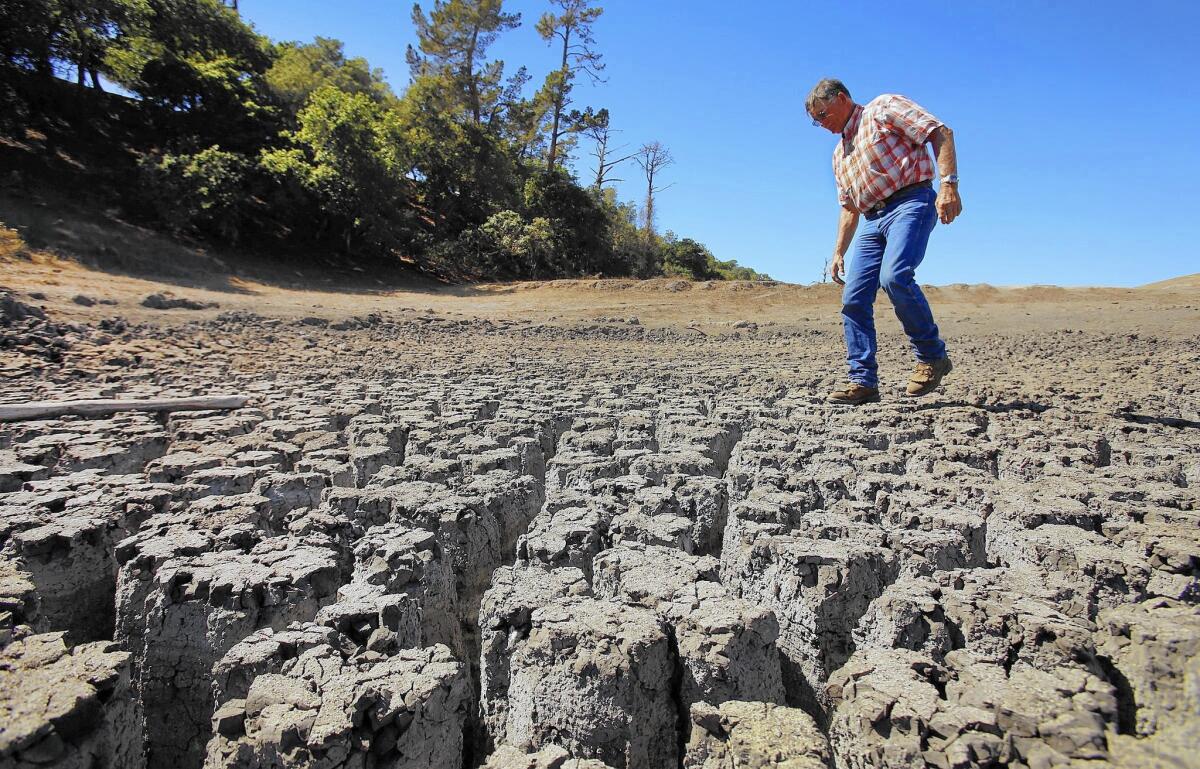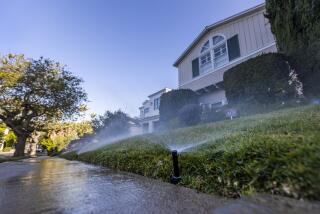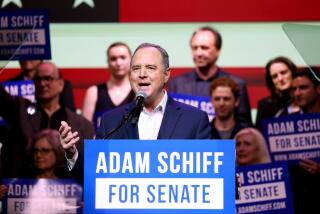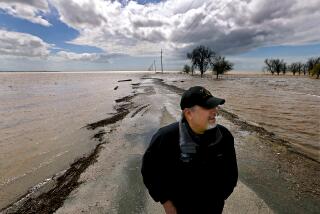Sen. Dianne Feinstein’s role as water referee is complicated by drought

The long-range weather forecast is the biggest wild card in the battle over every available bucket of water in drought-stricken California — but a close second may be Dianne Feinstein.
In a dispute in which positions have hardened after years of fighting, the state’s senior U.S. senator, who is expected to broker any deal that reallocates water supply, is one of the few remaining enigmas. The only thing consistent about Feinstein’s role as water referee is that the fights have left bruises on the exacting and thick-skinned senator over the years. The last few weeks have been particularly rough.
A year that started with Central Valley figures branding her a radical environmentalist and Bay Area dilettante ended with accusations from once-friendly colleagues and liberal editorial boards that the 22-year veteran of the Senate was shilling for Big Agriculture.
For months, Feinstein had tried to craft a compromise drought relief bill by negotiating a water deal behind closed doors with the state’s major agricultural interests. Late in Congress’ lame-duck session, those talks collapsed. No legislation got passed.
Yet Feinstein is eager to get back in the ring as soon as Congress picks up again in January.
“We can’t wait for more rain, we need to be able to do more with what we have,” she said in an email.
Even when Republicans take over the Senate next year, Feinstein will probably remain the chamber’s arbiter of California water. Long-standing tradition in the Senate is not to mess with water policy in a state without the support of at least one of its senators.
As she gears back up, one key factor will be Feinstein’s ability — and willingness — to maintain a careful balance between agriculture and the state’s numerous and vocal environmental activists.
Over the years, Feinstein has mastered an ability to stay on good terms with both groups. She has a nearly perfect legislative score card from the League of Conservation Voters, balanced by radiant endorsements from the Western Growers Assn.
The senator’s deep connection with agricultural leaders, who traditionally lean Republican, has long had advantages. They dominate politics in key inland regions and have helped her coast to reelection over and again. By contrast, Western Growers has worked aggressively — albeit unsuccessfully — to unseat California’s other senator, Democrat Barbara Boxer.
In addition to having relationships on both sides, Feinstein knows the details of water policy like no other elected official in Washington. She has presided over most significant California water negotiations in Congress for years, aggressively boring into the minutiae that other lawmakers eagerly shove off to staff.
“She understands water as well as anyone in Congress,” said Al Montna, a Yuba City rice farmer who has helped negotiate California water policy for years. “I would be surprised if she did not have a major hand in anything that was approved there.”
Lately, though, even with Feinstein’s mastery of the details, those relationships have proven tougher to calibrate. As the amount of water available diminishes, so does her ability to make everyone at the negotiating table happy.
Environmentalists and many House Democrats were irked this year that Feinstein tried to privately reach a deal with growers without their input. It didn’t help that she had declared earlier in the process that environmental groups had never been useful in developing good water policy. Advocates, who produced news releases in which Feinstein had praised them for their involvement in innovative water compromises, professed bafflement at her comments.
“Sen. Feinstein legitimately views herself as looking out for the broader interests of California on these issues,” said Rep. Jared Huffman of San Rafael, one of several Bay Area Democrats who worked to scuttle the deal the senator was trying to cobble together. “She just happens to define those broader interests in a way that I think is too weighted in favor of some very powerful folks in the San Joaquin Valley.”
A growing number of environmental groups and their allies in the House take the view that Congress should simply stay out of the state’s water allocation issues. They worry that any increase in pumping leaves the fragile ecosystem of the Sacramento-San Joaquin River Delta vulnerable to collapse and feel they have the support they need in the courts and the Legislature to enforce a solution that would not involve diverting additional water to large Central Valley farms.
That resistance to a federal solution led to Feinstein’s cutting the environmental groups out of her negotiations. But the groups proved a more troublesome foil than anticipated, using social media and the 24-hour news cycle to ambush the senator as she tried to bring her negotiations with growers to a close.
“Things played out very differently this year than they had in the past,” said Doug Obegi, an attorney at the Natural Resources Defense Council.
The last time Feinstein insisted on diverting more water to growers over the objections of environmentalists, “she locked everyone in the room, which she is famous for, and we were successful at convincing her we could reach a compromise,” he said. “We never got that call this year.”
Tension with environmentalists is not new for Feinstein. The latest dispute has the groups dusting off their list of grievances. It is long.
High on the list is the 2009 crusade Feinstein launched on behalf of Stewart Resnick, a billionaire from Beverly Hills and friend of Feinstein who presides over a vast agricultural empire. Resnick complained to Feinstein in a letter that restrictions on pumping water to Central Valley farms were based on “sloppy science.” Feinstein took up his cause, demanding that the Obama administration launch a new study.
Some $750,000 was spent studying the issue anew. Researchers concluded, again, that the restrictions were warranted. Other fights involved a water-storage plan on the Merced River and an oyster farm that Feinstein defended despite its being within part of the Point Reyes National Seashore that the Obama administration wants to designate a national wilderness.
Even after Feinstein agreed to stop negotiating water deals in secret this year, environmental groups tracked her every move until Congress adjourned. They feared she might sneak something they would find egregious into the massive 11th-hour federal spending package. And they bristle at her assurances that she’s got their backs.
The senator is undeterred — and still seeking to balance the two sides.
“I believe we can and must provide more operational flexibility in California’s water system,” she wrote, adding, however, that the state can “move water without waiving environmental laws.”
Twitter:@evanhalper
More to Read
Start your day right
Sign up for Essential California for news, features and recommendations from the L.A. Times and beyond in your inbox six days a week.
You may occasionally receive promotional content from the Los Angeles Times.







